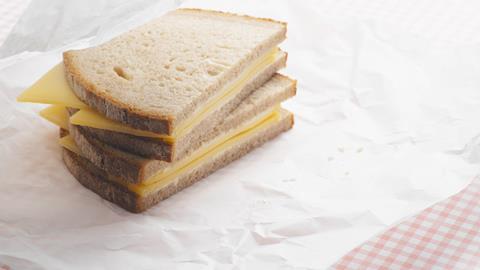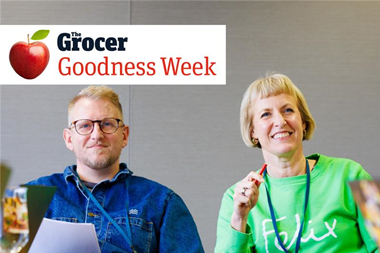Britain has for some time now been considered the fat man of Europe. A 2022 World Health Authority report found the UK had the highest obesity rates of all the major western European nations. That seems unlikely to change any time soon, if attitudes to so-called ultra processed foods (UPFs) are anything to go by, with exclusive research for The Grocer showing how Brits are less knowledgeable and less concerned than their European neighbours
There’s a new buzzword in health circles. Ultra-processed foods or UPFs. And all across Europe shoppers are spooked by the term.
‘Consumer Perceptions Unwrapped: Ultra-Processed Foods’, a study of 10,000 shoppers by EIT Food Consumer Observatory, found the majority of shoppers fear UPFs are bad for their health. And it’s led to a growing demonisation of the food industry.
But what about Brits? The Grocer secured exclusive access to UK data from the EIT study. It shows Brits’ knowledge and concern about ultra-processed foods lags behind that of our European neighbours.
Put plainly, consumers in the UK are less aware of ultra-processed foods, and where they are, have a higher acceptance of it. While 65% of shoppers in Europe now believe that UPFs are bad for their health, in the UK only 61% are worried.
Brits also admit to eating ultra-processed foods more. The survey found that 68% admit to consuming ultra-processed foods at least once a week, versus only 56% in the EU as a whole. And 12% estimate they do so on a daily basis in the UK versus 8% in the EU.
One possible reason for the discrepancy in attitudes is that in Britain shoppers tend to think of ultra-processed foods as cheaper (54% vs 49%) and more convenient (56% vs 41%) than their whole food alternatives. That may also explain why Brits make less of an effort to seek out unprocessed or less processed alternatives. In Europe, 56% of shoppers go out of their way to buy foods that are not processed. In contrast, only 48% of UK shoppers say they buy foods that require preparation.
As concerns grow over the health implications of ultra-processed foods, the British Nutrition Foundation found 33% of UK adults were planning to reduce their UPF intake in 2023, up from 25% in 2021. That leaves a majority of consumers, who have heard of ultra-processed foods, intending to make no changes to their lifestyles.
Our laissez-faire attitude may come from being more trusting of regulations than our European cousins, with 43% believing health authorities and regulatory bodies have the necessary rules, regulations and standards to ensure our food is safe, versus 35% in the EU.
We’re also more likely to give food retailers and manufacturers the benefit of the doubt about ultra-processed foods, with 37% believing that some UPFs can still be healthy. The corresponding figure for the survey as a whole was 31%.
Confusion compounded by labelling
And to be fair, it’s not just UK consumers that are sceptical about the blanket demonisation of UPFs. Many health experts believe some products classified as ultra-processed can still be considered healthy as part of a balanced diet, such as bread, canned beans and fish fingers.
“For us, food processing plays an incredibly important role in reducing fats, salt, sugar from our products, as well as being able to add benefits to our products in terms of fibre or vitamins,” Zoë Ellis, head of nutrition & science at Danone told The Grocer’s Navigating the UPF Debate webinar. “Anywhere were you have wholemeal bread, baked beans and fruit yoghurt in the same categorisation as sweets and soda drinks is completely nonsensical and lacks credibility as well.”
The current situation with labelling only adds to the confusion, says Ellis. “IGD research from last year specifically looked into this and found consumers were very confused because they saw UPF on one side and then interpreted traffic light labelling indicating the product is healthy as well.
“A lot of consumers think they know what ultra-processed foods are, but actually when you present all the classifications and products that fall within that scope, it leads to really strong emotions and a lot of confusion,” adds Ellis.
As the charts below show, British consumers are less likely than their European counterparts to correctly ascertain just how processed foodstuffs are, with some marked differences in how they classify popular grocery items.
The prevailing theme is that Brits are less likely to consider foods ultra-processed than Europeans. In fact, there is only one category in the survey in which more Brits classified a foodstuff as ultra-processed than Europeans. That was slices of cheese.
This one comes down to differing perceptions of what cheese slices are. Brits tend to think of American-style, burger ‘cheese’ singles when you present the idea of cheese slices. Often in the UK, these are referred to as ‘cheesy singles’ or ‘cheesy slices’ on-pack as the term ‘cheese’ is legally reserved for products solely derived from dairy products. Whereas many European nations have their own traditions of slicing cheeses such as edam, emmental and maasdam.
UPF regulation requires consensus
In its recommendations in the wake of the survey, the EIT Food Consumer Observatory urged health institutions and scientists to define ultra-processed foods better and make more conclusive and substantiated statements about their short- and long-term healthiness.
It also recommended health institutions consider how to communicate with and educate consumers about what food processing means, what it can look like, and what effects it can have on health.
“Giving consumers clearer labelling, guidance and education could help them to better understand and engage with this issue, but it’s also important that concerns over processed food are considered in the wider context of people’s diets and wellbeing,” said Klaus Grunert, director of the EIT Food Consumer Observatory and professor at Denmark’s Aarhus University.
“It’s also crucial that we continue to bolster our understanding and agreement of how we classify, evaluate and label foods, so that our advice to consumers is informed by the latest science.”

That’s easier said than done.
Asked which types of food companies were most engaged on the ultra-processed food issue, Kate Halliwell, chief scientific officer at the Food & Drink Federation, said businesses off all shapes and sizes were taking note.
“The UPF definition is actually very broad so everyone is looking at it and wondering what it is. Companies can find it confusing as well. What we’re doing to support our companies at the Food & Drink Federation is looking at the evidence base as it comes through.”
The trade body also relies on expert committees advising government.
Read more:
-
Henry Dimbleby calls for total ad ban on UPF and HFSS food
-
The struggle to process what ultra-processed foods means
-
Health-based sales reporting is laudable, but what actually is ‘healthy’?
Does plant-based always mean ultra-processed?
The EIT also suggested national food recommendations need to clarify whether plant-based substitutes are ultra-processed foods and whether this matters for their overall healthiness. About a third of British and European consumers (34% and 36% respectively) in the survey consider plant-based substitutes such as vegetarian chicken pieces and vegan cheese slices to be ultra-processed.
And concern about how highly processed alt-meats are is damaging the category. In the survey, 54% of European consumers say they do not eat plant-based substitutes, compared with 49% in the UK. Brits are also more likely to consider vegan meat and dairy alternatives a healthy substitute (29% vs 26%), as well as believing them to be better for the environment (32% vs 27%), though the low scores across the board indicate broader issues for meat substitutes.
Convenience and price are key for Brits
While Brits may be lagging behind their European counterparts, awareness is only on the rise as the subject continues to gain traction.
The British Nutrition Foundation has been tracking public awareness of UPFs. “Compared to 2021, the 2023 survey found that more people had heard of the term ‘ultra-processed food’ (46% vs 30%) and were trying to reduce these foods in their diet (33% vs 25%),” says its nutrition communications manager, Bridget Benelam.
But the convenience offered by ultra-processed foods, which often require little to no preparation, has proved too difficult for time-short (or lazy?) Brits to turn their backs on just yet.
Clean label NPD for the rich?
The food and beverage industry is all too aware of the changing tide, however. Just this week, research conducted by Oxford University, for youth activist campaign group Bite Back named and shamed companies it said were profiting from flogging unhealthy (and, often, ultra-processed) foods primarily to children.
Many are trying to formulate new products that are less processed, much like they did when the HFSS ban came into force.
But it’s not easy.
“Making a product for the mass market with a clean deck is in many cases a tough technical or commercial ask,” says Danny Butt, director of Food Innovation Solutions. “Often R&D teams are given briefs with very tight guardrails around consumer preferences and purchase priorities that makes simple-sounding formulation changes a huge challenge.
“Ultimately, a clean label version of many on-shelf favourites would cost 10 times as much and would last just two days. In the development process feasibility is being chipped away before you even factor in price.”
Grocery has always prided itself on quick wins, but development of whole food alternatives to British cupboard staples may well be a longer-term project. Especially with EIT’s survey proving that in Britain, less than half of consumers are willing to make the effort to ensure they’re avoiding processed ingredients.
It’s reflected in a lack of urgency among manufacturers and retailers to get a product out there, says Butt.
“How much of the market is truly making a dietary change? And with costs where they are, R&D is already suffering.
“Everyone wants to do the right thing. It’s about who’s going to pay for it.”




















No comments yet